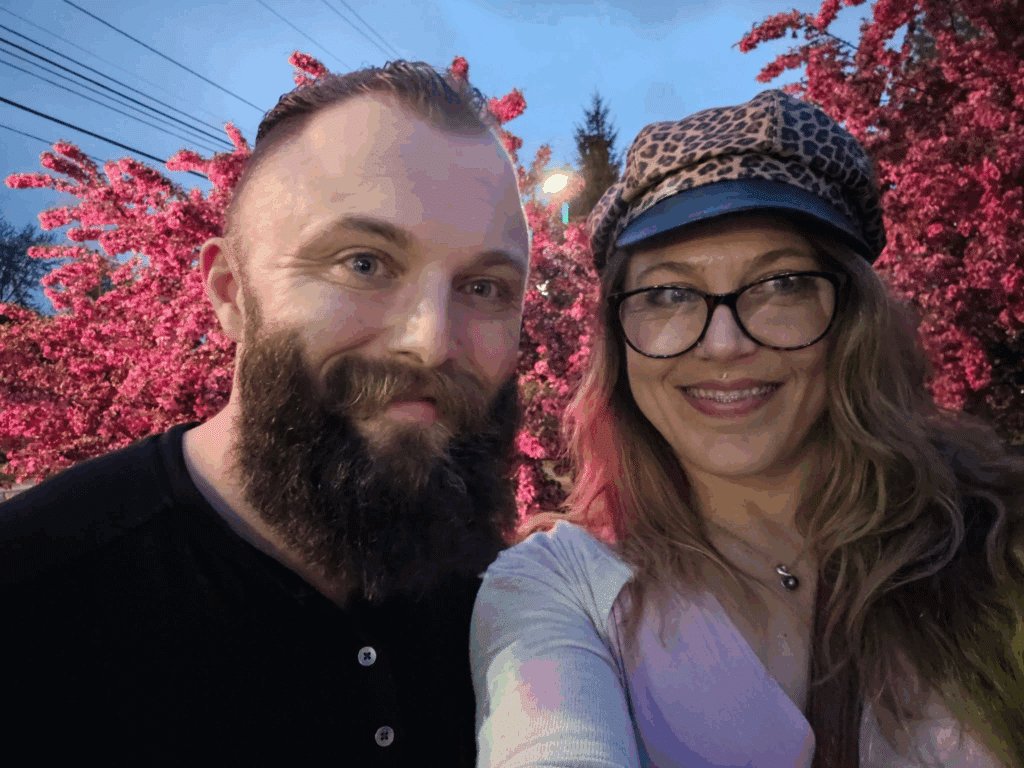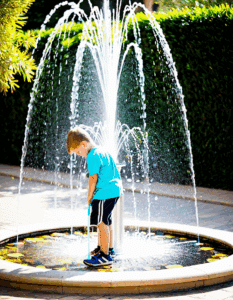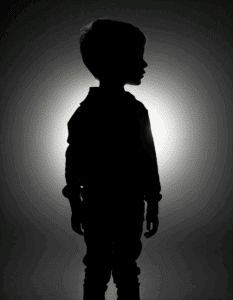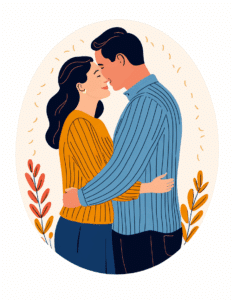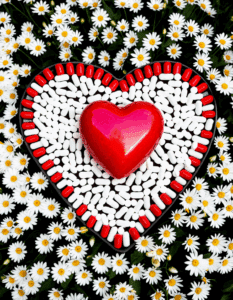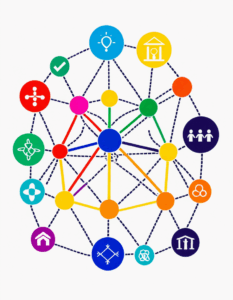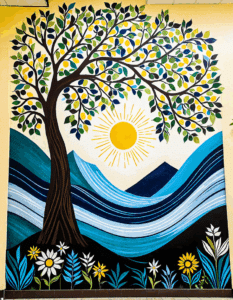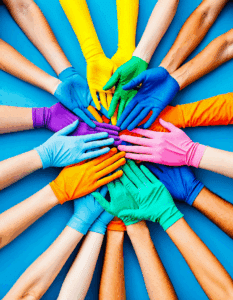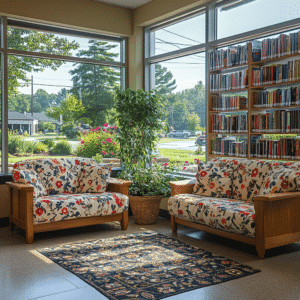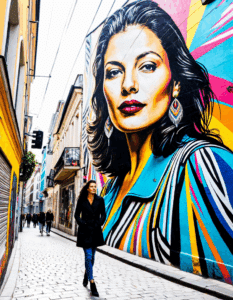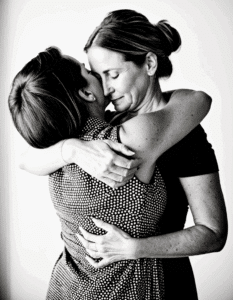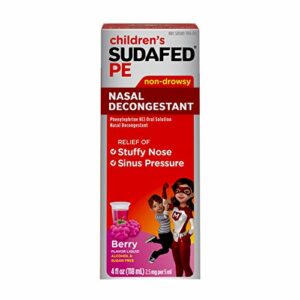Connect with Jeff Lambe
- Website: Bold Steps
- Instagram: Jeff’s Instagram
- LinkedIn: Jeff’s Linkedin
- Email:
Q&A with Jeff Lambe
Q: Can you start by telling us a little about yourself? (Background, profession, personal journey)
A: I grew up in Massachusetts and had a fairly normal upbringing and childhood. But even early on, I remember feelings of discomfort I couldn’t quite articulate—feeling like I didn’t fit in with certain groups, pressure to act a certain way, a need to impress people, and a sense of unease that I now recognize as anxiety. Looking back, I realize I just didn’t know what I didn’t know.
I was smart and performed well in school, but I got distracted easily, only focused on what interested me, and often got in trouble for not doing homework. I was diagnosed with ADHD and medicated for it. On paper, everything looked good—I was highly focused on maintaining external appearances—but I started to find relief and relaxation in drugs and alcohol. At the time, it felt normal. I now understand addiction as a progressive disease—one that lies to you in your own voice, normalizes destructive behavior, and justifies its existence at any cost.
I’ve found sobriety through God and 12-step programs. The first step is admitting powerlessness and accepting that your life is unmanageable. That’s really a two-part thing: I was powerless, but I didn’t see my life as unmanageable, so addiction quietly embedded itself in my life. Externally, I maintained appearance and seemed to be doing well: I earned a bachelor’s degree from BU, moved to Maine, got a JD, and earned certificates in Information Privacy Law. I thought I had it all figured out.
But addiction is progressive, and the unmanageability started catching up with me. People close to me noticed before I did, but none of that matters unless I accept it myself. You could have told me I was an alcoholic, but I had to concede that for myself.
I won’t turn this into a war story, but 2017 and 2018 were very dark years for me mentally and spiritually. My addiction had escalated to a point where I could no longer ignore it. It wasn’t a “one and done” journey—I went through hospital stays, detoxes, and rehabs—but eventually it stuck. I’ve been sober from all mind-altering substances since Christmas Day 2018. I wasn’t sure it was my last time when it happened, but I finally surrendered. That meant accepting advice, taking suggestions, and becoming accountable. I built a strong network of men who supported me. I didn’t do it perfectly—no one does—but I genuinely gave it my all. When you want results you’ve never had, you have to do things you’ve never done.
Since then, recovery and spirituality have become central to my life. I took a suggestion to try working in the behavioral health field and found I genuinely loved it. I’ve worn many hats in this space over the past six years, and it’s been deeply rewarding. It comes with its own stress, but I never feel like it’s a job—it’s a privilege.

Q: Could you share how addiction has personally impacted your life or the life of someone close to you?
A: This is one of those things that only becomes fully clear in hindsight. If you had asked me in 2016, early 2018, on the day I got sober, or even six months into sobriety, you’d have gotten different answers. That’s because my perception of addiction and my life kept evolving.
Addiction affected everything, even before I took my first drink. I can see now that I had these tendencies as a child—I remember collecting Pokémon cards “alcoholically.” Addiction became the way I dealt with an internal condition I wasn’t mentally or spiritually equipped to face. It helped me feel okay, helped me breathe, helped me regulate emotionally. And it worked for a while—it was even fun. But at some point, I crossed an invisible line, and it was never enough. My internal issues remained, and external problems piled up.
Addiction warped my perception of reality and distorted my mind. In 12-step literature, this is called a “peculiar mental twist”—basically, my mind convinced me that poor decisions were good ones—or at least permissible given the circumstances—if they served my addiction. It became a parasite on my thinking.
This led to damaged and destroyed relationships. I hurt a lot of people, even if I didn’t see it that way at the time.
But the spiritual solution I’ve found through recovery has helped mend many of those relationships. I once heard someone say, “Addiction is the only disease that can leave you better off than when it found you.” I didn’t understand that then, but I believe it now. I’ve found meaning and purpose, a deep spiritual connection with God, and relationships I never thought I’d repair. My life isn’t perfect, but I needed every moment of that journey to become the person I am today.
Q: What advice would you give to mothers who are struggling with their own addiction or are supporting a loved one through theirs?
A: This is the hardest thing I’ve ever done—but people do it every day.
For those supporting a loved one, the biggest things are: don’t blame yourself, and don’t give up hope. Someone once told me, “When you think about how hard it is to change yourself, you realize how unrealistic it is to try to change someone else.” Motivation for change has to come from within. That said, your support matters—a lot. Supporting positive change without enabling harmful behavior is critical. If that feels overwhelming, know there are people who can help you navigate it.
But maybe the most important advice is to take care of yourself. I’ve worked with hundreds—maybe thousands—of family members, and too often they’re so consumed with their loved one’s addiction that they neglect their own health and well-being. You can’t stop addiction. You can only be supportive of change, and until that change happens, you need to care for yourself.
Q: What were some of the biggest challenges you faced during your journey with addiction, either personally or as a supporter?
A: In hindsight, the biggest challenge was getting out of my own way. I didn’t know what I didn’t know, and I couldn’t see what I was blocked off from. I had to admit not only that I had a problem, but that my way of doing things wasn’t working—that I wasn’t going to get out of this on my own.
While this journey is emotionally and spiritually hard, there’s another side of it that’s surprisingly simple. Once you’re willing to admit you need help and accept that your way doesn’t work, people will give you clear, straightforward suggestions. My problem was that I was too stubborn and arrogant to listen. But with a little humility and openness, recovery became possible.
The hardest part was getting from inaction to action—from discomfort to willingness. Once I made that honest commitment because I wanted to—not just to avoid consequences—it got easier. It hasn’t been all smooth sailing. I’ve faced loss, grief, heartbreak. But I’m convinced the biggest challenge for anyone in addiction is always themselves.

Q: How did you find the strength and resources to keep going during the toughest moments?
A: The most practical and impactful step I took was going to treatment and sober living. My family played a huge role—they stopped enabling me and supported healthy choices. Because of that, finding strength and resources wasn’t hard—they were all around me.
I had a solid fellowship of men who held me accountable and supported me early on. That network was crucial. I was also in therapy before getting sober, but it wasn’t until I committed to recovery that I truly started listening and applying what I was learning. That made a big difference.
I was introduced to the 12 steps, and I ultimately credit them with my recovery. But I needed all those other supports—treatment, therapy, community—to be in the right place to fully benefit from the steps. Just showing up at a meeting with a closed mind and then going back to my old ways wouldn’t have helped. That’s why I’m so grateful to now work in helping others find those same resources so they can begin their own journey.
Q: What message would you like to share with mothers who feel isolated or hopeless in their battle against addiction?
A: To both mothers suffering from addiction themselves—and to those enduring a loved one’s addiction—my message is the same: help is available. Reach out. Get connected. There is so much support out there for both groups.
In my work now, I help people access addiction and mental health treatment. I’ve seen countless mothers recover—both those battling addiction and those supporting their children through it. Healing is possible. Mutual support groups are a great place to start.
To mothers specifically struggling with addiction: I’m not a mother, and I won’t pretend to know your experience. But I’ve worked with hundreds of women who’ve done the work and gotten well. It is absolutely possible.

Q: Are there any specific resources, programs, or strategies that you found particularly helpful in dealing with addiction?
A: For me, 12-step programs are the gold standard. I understand people have reservations, but approaching them with an open mind and a willingness to challenge your assumptions can be transformative. That’s what got me well.
Treatment is also essential. Yes, some people recover without it—but if you’re 10 years sober a decade from now, you’re not going to regret the time you spent in treatment, and this is a deadly disease. I promise whatever barriers you think are in the way, treatment is more attainable than it may seem. I’m always happy to talk with anyone about options, please reach out to me directly anytime. The process can feel intimidating, but it doesn’t have to be.
Q: Are there any specific resources, programs, or strategies that you found particularly helpful in dealing with addiction?
A: This could be a story of resilience, a powerful lesson learned, or a memorable moment that profoundly impacted your understanding of addiction.: I think the greatest joy I’ve found in recovery is the experience of passing this knowledge along to others.
I’ve met a lot of people who just want to get what they need and move on—and there’s nothing wrong with that—but I genuinely enjoy helping others through the process. I’ve been around long enough now to see people at their absolute worst go on to do exceptionally well in life.
I know millionaires who didn’t even have shoes when I first met them. I know people too emotionally broken to get out of bed or look you in the eyes in treatment who now devote their lives to helping others. It’s incredible. Seeing people I’ve been able to help—even in a small way or at just one point in their journey—go on to help others and carry this message forward is the most surreal and meaningful experience of my life.

